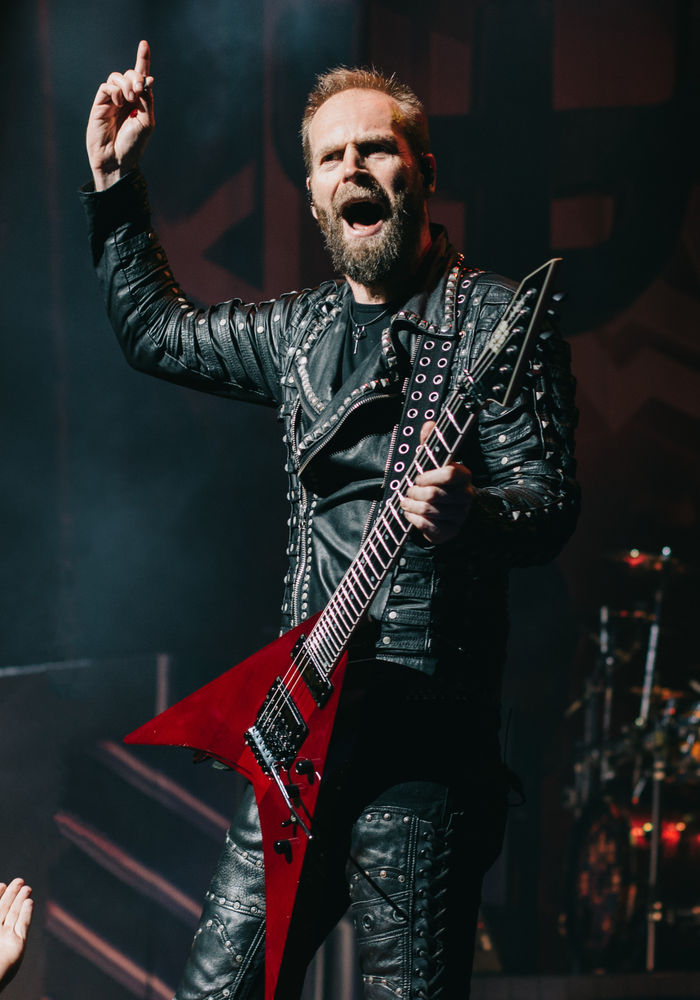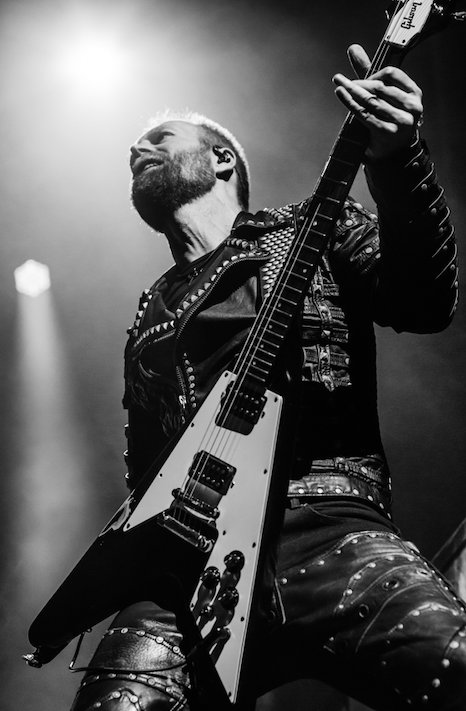Revered heavy metal guitarist, songwriter and producer Andy Sneap reflects on the moment he was asked to join Judas Priest as their touring guitarist, and explains why Celestion’s Vintage 30s are always his number one choice.
Andy Sneap should currently be touring with Judas Priest, but instead has spent a lot of this year hunkered down in his studio in rural Derbyshire working on various projects, which thankfully have been in good supply.
“Production-wise, it's worked out and it’s been quite a good year; gig-wise, it's turned out to be terrible,” says a laid back Sneap.
“There's been a few albums, so it's kept the wolf from the door. A lot of things are still being worked out with live stuff because that has to get planned around festivals next year - that determines a lot of scheduling for any gigs in between. I'm on a need to know basis, and I don't need to know,” he laughs. “Honestly when I'm on these tours now I don't even know where I am. I'm just like, ‘right, where's the stage?’”
Sneap is a musician, songwriter, guitar player and record producer with over 100 albums to his name, most of which have been produced at his Backstage Recording studios. Some of his most critically acclaimed production work on albums include Deliverance by Opeth and Disarm the Descent by Killswitch Engage, for which he earned a Swedish Grammis and a US Grammy nomination, respectively.
Sneap got his first guitar and amplifier from his parents at age 12 as a Christmas present. He started learning guitar with fellow Hell band member Dave Halliday, who had a profound effect on Sneap and left him the rights to all his songs and equipment in his will following his death.
“I got into rock and metal when my brother bought me a Status Quo single for Christmas,” he remembers. “I just loved the energy of it. Then I got into AC/DC, Motorhead and Iron Maiden and all the bands that were around then. It was a really happening time for metal. I met Dave, who was like an older brother to me. He took me under his wing, was giving me lessons, and it was just an inspiration seeing all these bands.”
He knew he wanted to be part of the metal scene, and as a performer, he first built his reputation as one of the guitarists in the British thrash metal band Sabbat – playing with them until their disbanding. To this day he is still one of the co-guitarists in Hell.
“I wasn’t really very good at anything else! I just loved the vibe of putting songs together and the sound of it all coming together as well. When Sabbat split up in 1990, I carried on in the studio side of things because even though I wasn't in a band, I was still being creative and doing what I enjoyed. It's always been a natural stepping stone. I've just followed my nose really and gone with where it's taken me.”



